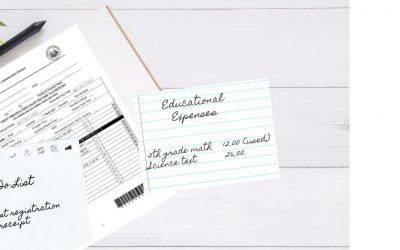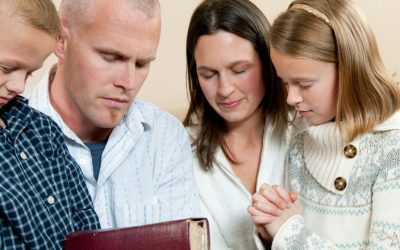“Individualized Instructional Program” (IIP) is a new term coined by the Hope Scholarship law that distinguishes Hope students who school at home versus those who attend private/parochial school. Here’s what the official Hope Scholarship website says about it:
“Although students with Individualized Instructional Programs under Hope Scholarship may share many common traits with traditional homeschool students, there is a distinction between the two under West Virginia Code.” [bold added]
They are absolutely right. Homeschoolers and Hope recipients do not fall under the same portion of the WV law. There is a distinction between the two.
One difference is that Hope applicants must provide more information to the state than homeschoolers do. For example, required student information includes gender, ethnicity and grade level along with the date of birth and name. Homeschoolers provide only name, address, and age. Hope students are also required to submit assessment results every year. Homeschoolers must assess every year but need only submit the results in 3rd, 5th, 8th and 11th grades.
Hope students must have a WVEIS number which assists the state with tracking the provided information.The West Virginia Education Information System (WVEIS) is the statewide administrative data system used for maintaining records of students in grade PK-12. Homeschoolers under Exemption c are not required to have EIS numbers.
The Hope Scholarship is administered by a Hope Scholarship Board with staffing provided by the State Treasurer’s office. According to page 14-15 of The Hope Scholarship Parent Handbook, the Hope board can adopt and amend bylaws governing the scholarship. It can also develop and impose requirements, policies, procedures and guidelines to implement and manage the program. This means that while homeschoolers are governed only by the wording of the homeschool exemption, Hope recipients answer to a board’s fluid regulations and rules.
Homeschoolers often avoid reporting to the counties until compulsory age requires them to submit a NOI. However, Hope families may choose to submit information earlier in order to apply for Hope funding in kindergarten.
Here are those differences in chart form:
| Homeschooling | Hopeschooling | |
| Exemption from compulsory attendance | Exemption c | Exemption m |
| How to begin | Notice of Intent to County Superintendent as outlined in exemption c2 (OR county approval if exemption c1.) | Application is necessary. Notice of Intent depends on the educational choice. Schooling at home via an Individual Instruction Program (IIP) is just one of several options. |
| How to assess | Assess every year; submit results in grades 3,5,8 and 11 | If using an IIP, assess every year; submit results EVERY YEAR |
| Where to find details | In 18-8-1c2 with help from traditional homeschooling organizations like CHEWV, WVHEA and HSLDA. | In 18-8-1m and at the official Hope website: https://hopescholarshipwv.com |
| Need WVEIS* number? | No | Yes |
| Administered by | No government entity. Families follow the law’s requirements. | Hope Scholarship Board with staffing provided by the State Treasurer’s Office |
| Funding | Private | Public funding via “participating education service providers” |
| Kindergarten considerations | No advantage to send NOI before compulsory age | Funding available if eligible for kindergarten, even if not of compulsory age |
| Reporting considerations | Name, age, address of child only. Assessment results for 5 subjects, 4 times total. | Additional information required on application. Assessment results annually. |
| Eligibility | Any student at any time | Current public school students plus students eligible for kindergarten |
One of the hallmarks of homeschooling is to identify the learning styles and needs of each individual child (see CHEWV’s helpful guidelines), then select the curriculum approach that will help him or her soar. We encourage Hope parents, if possible, not to limit themselves to the funded providers (Education Service Providers). Many excellent providers may not choose to register with the state and come under the rules of the governing board. Our free curriculum booklet explains the broader options.
Neither can Hope students and homeschoolers use the same Notice of Intent. The Notice requirements are different for the two groups.
Note that homeschoolers may choose among four assessment options, while IIP Hope students have two. Although homeschoolers do not submit assessment results annually; IIP Hope students do. The assessment requirements are simply not the same for the two different groups of students.
The point is that the Hope Scholarship is different from homeschooling in key ways, just as private schooling is different from homeschooling in key ways.
We reiterate the quote from the official Hope site:
“Although students with Individualized Instructional Programs under Hope Scholarship may share many common traits with traditional homeschool students, there is a distinction between the two under West Virginia Code.”
Perhaps most importantly of all, when legislators, newscasters, or even parents mistakenly try to mix the two into one, it puts both at risk. A legislative criticism of homeschooling shouldn’t affect Hope students, nor should a legislative criticism of the Hope scholarship affect homeschoolers. The Hope Scholarship and homeschooling are two of several educational options available to parents. For a fuller explanation of the WV exemptions available, read here.
In the 2022 legislative session, it was argued on the House floor that homeschoolers now receive public funds and therefore should be regulated. However, that simply isn’t true. The only legal WV homeschool exemption is exemption c which never has and does not now allow for state funding. State or public funding is clearly only a possibility under the Hope Exemption m. And while many see Hope funding as a big advantage, protecting the private homeschooling option is equally important.
As we have for 30+ years, CHEWV will continue to defend the freedom of homeschooling families. Parents have many choices, but Christian Home Educators is 100% committed to seeing to it that private homeschooling – with the fewest strings attached – remains one of them.





Recent Comments